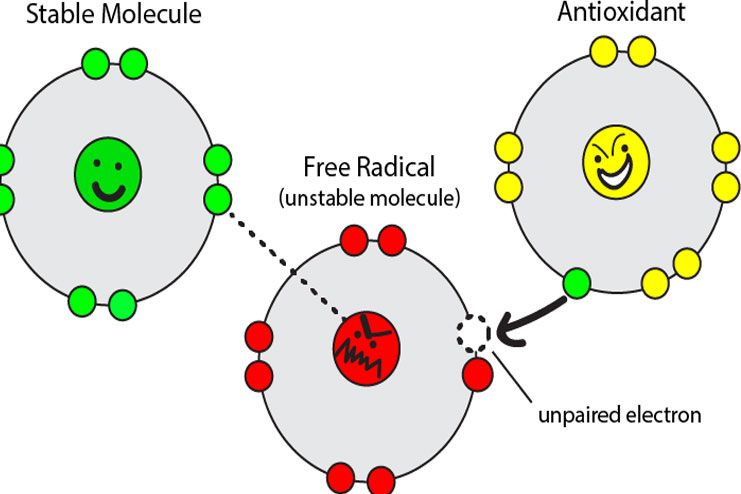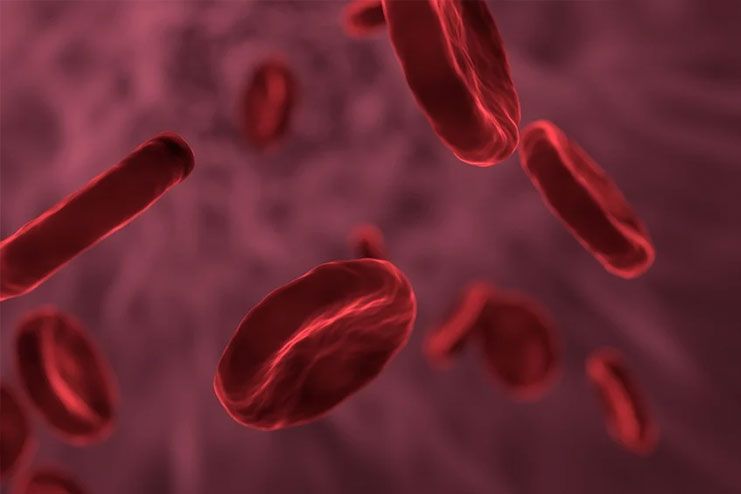Adding a quick sprinkle of chopped parsley on top of any dish is enough to bring it to life. Not only does it add freshness, but it also offers impressive health benefits. This Italian herb is renowned for its amazing benefits for the skin, hair, and overall health.
If you have been sprinkling a pinch of fresh or dried parsley on your dishes, perhaps little did you know that you are enhancing your well-being. However, knowing the health benefits better is always advantageous, isn’t it?
This article will share some surprising health benefits of parsley consumption that you may not have known.
Nutritional Value of Parsley

Regarding parsley, it’s best to examine its nutrient content before exploring its benefits.
- Calories: 22 calories
- Carbs: 4 g
- Protein: 2 g
- Fat: 2 g
- Fiber: 2 g
- Vitamin A: 216% of RDI
- Vitamin C: 106% of RDI
- Vitamin K: 1094% of RDI
- Folate: 22% of RDI
- Potassium: 8% of RDI
These proportions are based on 1 cup of chopped fresh parsley leaves, so keep that in mind.
Health Benefits of Parsley
 Now that we know parsley’s nutritional content and makeup, it’s time to explore its health benefits.
Now that we know parsley’s nutritional content and makeup, it’s time to explore its health benefits.
1. Enriched with Antioxidants

Parsley is very rich in antioxidants, which can control reactive oxidative stress levels. They help inhibit cell damage by free radicals and are thus essential for health.
Parsley is rich in antioxidants (R)(R) that include flavonoids, carotenoids, and vitamin C. Laboratory tests (R) reveal that flavonoids can minimize chronic disease risk. Further, vitamin C found in parsley enhances a stronger immune system (R).
Dried parsley contains more antioxidants than fresh parsley, as suggested by research (R).
2. Help Promote Better Kidney Health

Our kidneys need a constant supply of nutrients to function correctly, and parsley is one food that helps support kidney health.
Studies (R) have shown parsley to have natural diuretic properties that help detox the body.
One study used rats, and the rats given a parsley-based drink had more urine output within 24 hours than those with no parsley-based drink. Flushing out toxic substances in your body reduces further risks of contracting kidney stones, infections, or other kidney conditions.
In addition, it is thought to be especially effective in reducing the occurrence of kidney stones, which contributes to preserving the kidneys as a whole.
Also, Read: 12 Ways To Maintain Good Kidney Health – Know The Dos!
3. Protection Against the Risks of Breast Cancer

Another considerable health benefit of parsley is its protection against breast cancer.
As mentioned earlier, parsley is also rich in flavonoids; one of them, apigenin, provides strong protective measures against cancer (R).
Apigenin protects tissues against potential risks and has been noted to suppress the growth of cancerous cells.
Research suggests that apigenin may be an excellent natural breast cancer treatment. Sprinkling fresh parsley leaves, chopped and tossed into salads or other dishes, is another way of experiencing its benefits. It is one of the most effective non-toxic methods of preventing and managing cancer.
Also, Read: Experiences of Breast Cancer Survivors and Personal Journeys
4. Has Amazing Anti-Inflammatory Properties

Linking the inflammation to an increased risk for chronic diseases, while, in critical cases, it poses a deadly outcome.
Another nutritional benefit of parsley is lowering a person’s ability to become inflamed. Vitamins like A, C, and K support the body in reducing its degrees of inflammation. This is significant for individuals living with arthritis.
Another significant aspect is the presence of antioxidants, which fight oxidative stress and contribute to overall health. Parsley has substantial anti-inflammatory properties (R), which have made it highly effective in offering better well-being.
5. Boosts Your Immunity

As discussed earlier, parsley’s high vitamin C level ensures a strong boost to overall immunity.
Parsley contains antioxidants, which maintain a powerful and balanced immune system. Other researchers say the essential oils in the plant help modulate the immune system’s response.
Not only does it guard against such frequent diseases, but it may also increase wound healing time. Thus, including parsley in your diet becomes quite healthy.
Also, Read: 10 Ultimate Ways to Boost Immunity for A Healthy Living
6. Promotes Heart Health

Parsley is a heart-healthy herb that helps promote better heart and overall cardiovascular function.
Folic acid in parsley is believed to play a key role in supporting heart health(R).
High levels of homocysteine in the bloodstream are associated with poor heart health, particularly increasing the risk of damage to the arteries and veins. Folic acid has been found to be effective in reducing these risks.
Additionally, high levels of folic acid in parsley have shown beneficial effects in inhibiting the proliferation of cancer cells.
In general, consuming parsley has been linked to improved heart function and cardiovascular health.
Also, Read: The Importance of Regular Heart Check-ups: Early Detection and Prevention
7. Prevents Risks of Cancers
Even though we previously discussed parsley’s impact on breast cancer, it’s important to also highlight its role in preventing the risks of several other cancers.
In addition to raw parsley, the oil extracted from parsley contains essential oils and volatile compounds that have been found to exhibit anti-cancer properties.
Compounds such as myristicin, limonene, and eugenol significantly reduce cancer risks. These compounds help boost overall immunity while also fighting cancer at its core.
They are known to slow down tumor growth and reduce the risks of uncontrolled free radical damage in the body.
Parsley is also considered a chemo-protective plant, mainly due to its ability to protect DNA from damage. It prevents mutations and promotes apoptosis (the process of planned cell death), which helps eliminate harmful cells from the body.
8. Promotes Better Bone Health

Yet another benefit of eating parsley is that it helps keep your bones strong and in optimal condition.
The Vitamin K present in parsley is believed to promote better bone health and prevent unnecessary injury risks.
A regulated presence of Vitamin K in the body helps stimulate the production of osteoblasts, which support bone health.
It also contributes to the formation of proteins (R) that promote better bone density.
Several studies (R) have found that consuming optimal levels of Vitamin K daily can help reduce your risk of fractures.
Also, Read: 9 Astounding Foods For Stronger Bones
9. Prevents the Risks of Edema

Edema is a condition characterized by the swelling of certain body parts, often caused by water retention.
Studies (R) have found that parsley has effective diuretic properties, which help reduce the risks associated with edema.
Additionally, parsley helps maintain a balance in the body’s electrolyte levels, which is one of the primary reasons it is considered an effective remedy for better health.
It also helps boost potassium levels in the body.
Also, Read: 12 Ways to Reduce Edema Naturally – Get Rid of The Swelling
10. Amazing in Slowing Down the Aging Process

No one wants to age prematurely, and if you’d prefer not to rely on unnatural methods to slow down the aging process, parsley is considered one of the best natural remedies.
Parsley’s Vitamin C helps promote collagen production (R) in the skin, which prevents the early signs of aging.
Collagen improves the appearance of fine lines and wrinkles (R), helping to keep your skin looking youthful and vibrant.
Also, Read: Beauty Sleep Hacks: 10 Tips for Glowing Skin and Restful Nights
11. Promotes Better Digestion

If you’ve been struggling to digest your food, parsley can help with that.
It is believed to be a soothing herb that reduces the risks of bloating and indigestion.
Additionally, parsley contains compounds that help promote better gas expulsion from the body, allowing you to feel more comfortable after eating.
Also, Read: How to boost your digestion
12. Helps Support Anemic Patients

If you suffer from anemia, it can be challenging to keep your health in check, with constant fatigue and weakness being common issues.
Parsley has a high iron content, which can help manage anemia. If you struggle with iron-deficiency anemia, adding parsley to your diet can work wonders.
Studies (R) have even found that parsley has anti-anemic properties in preclinical trials conducted on mice.
Moreover, the combination of Vitamin C and parsley’s high iron content helps promote better iron absorption, contributing to a healthier life.
Also, Read: Iron-Rich Leafy Green Salad: Combat Anemia Deliciously
13. Positive Impacts Against Diabetes

If you struggle with diabetes, the nutritional value of parsley can help manage the condition.
A compound called myricetin, found in parsley, has been shown to prevent insulin resistance and help regulate blood sugar levels.
In addition, parsley contains anti-inflammatory properties, which have been found to reduce fat levels in the bloodstream, promoting better carbohydrate metabolism.
A study with a rat model also found that daily parsley supplementation helped reduce glucose levels in the rats throughout the study.
If you are at risk of diabetes or in its early stages, incorporating parsley into your diet is one of the best ways to manage it.
Also, Read: How Your Diet Impacts Diabetes
14. Helps Fight off Infections

If you are prone to bacterial or fungal infections, one of the best ways to combat this is with parsley.
This fresh herb contains antibacterial and antifungal properties, making it highly effective in preventing infection risks.
Parsley oil is considered one of the best for your skin. It helps eliminate infections and can even lighten the appearance of blemishes.
Since parsley oil is essential, it’s important to dilute it with a carrier oil before applying it to the affected area. This can be especially helpful for most people. Additionally, performing a patch test before completing the application is recommended.
Also, Read: 5 Types of Infections That You Must Know in Detail
15. Promotes Better Eye Health

Another health benefit of eating parsley is that it promotes better eye health.
The carotenoids in parsley, including beta-carotene and lutein, positively affect your eyes. Not only do they protect your eyes from free radical damage, but they also provide additional benefits.
Lutein has been found to help prevent the risks associated with macular degeneration. Studies (R) show that consuming foods like parsley, which is high in lutein, can reduce the risk of macular degeneration by 26%.
Beta-carotene also promotes better vision and overall eye health, which is essential for maintaining the best possible condition of the eyes.
Also, Read: Combat Digital Eye Strain: 7 Blue Light Blocking Glasses for Screen Time Relief
16. Might Promote Weight Loss

Although few studies firmly support this claim, parsley consumption is believed to effectively promote overall weight loss.
Parsley is also low in calories and has been found to positively impact metabolism positively. Additionally, it helps prevent water retention, further enhancing weight loss results.
The proper functioning of the body is closely linked to better weight loss outcomes.
Also, Read: How to Balance Macronutrients for Sustainable Weight Loss
17. Prevents Halitosis

Halitosis, or bad breath, is a condition that can put you in an embarrassing position. To avoid this, consuming parsley can help keep your breath fresh.
Although the exact mechanism is hard to pinpoint, it is believed that the freshness and natural compounds in parsley help promote fresh breath, especially after consuming foods like onions and garlic, which are rich in sulfur.
18. Regulates Your Cholesterol Levels

Optimal and regulated cholesterol levels in the bloodstream are key to maintaining good health. High levels of cholesterol and triglycerides in the blood are associated with an increased risk of cardiovascular issues.
The fiber content in parsley helps keep cholesterol levels in check, helping prevent unnecessary risks to health.
Additionally, studies (R) have shown that the flavonoid content in parsley can positively impact cholesterol levels, promoting better health.
Also, Read: Food Swaps to Manage High Cholesterol Without Sacrificing Taste
19. Improves Brain Health

You might not realize it, but one of the benefits of eating parsley is that it helps boost overall brain health. The flavonoid apigenin found in the herb has been shown to promote better cognitive function and enhance neural connections in the brain.
It also helps prevent the risks associated with neurodegenerative conditions, which can contribute to diseases like Alzheimer’s and depression. A study found that parsley has significant health benefits in improving mitochondrial function in the brain.
Also, Read: Glucose: Why It’s Vital for the Brain and Muscles
20. Aids Menstrual Cycle Issues

If you struggle with issues during your menstrual cycle, one of the best ways to address that is with parsley. The two plant compounds, apiol and myristicin, have been found to have remarkable emmenagogue effects on the body, meaning they help stimulate normal menstrual flow.
Also, Read: 15 Tips for Managing Menstrual Symptoms at Work
Conclusion
Naturopaths believe that consuming parsley or parsley juice may have beneficial effects in combating these issues. If you’ve been wondering about the health benefits of parsley, these are the top ones you definitely can’t miss out on.
Explore the available options, as this can make all the difference. It’s always important to consult your doctor before incorporating parsley into your diet, especially if you are taking medications for chronic conditions.
-
Oct 2020Written by Somapika D
-
Apr 2025Edited by Lakshmi Gayatri
In this Article

















